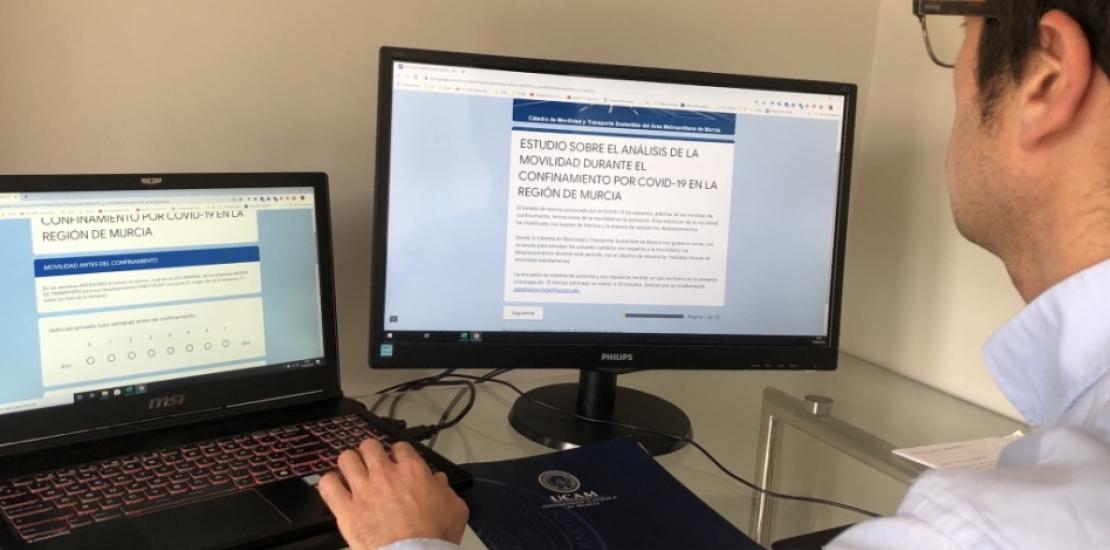UCAM analyses how mobility has changed in the Region due to the coronavirus crisis
The Chair of Mobility and Sustainable Transport of Murcia studies regular commutes before confinement, how the COVID-19 emergency interfered with them and what are the security perceptions of the citizens with regard to transportation modalities.
In order to foresee the new movement patterns of the users of the Region after the coronavirus pandemic, the Chair of Mobility and Sustainable Transport of the metropolitan Area of Murcia of UCAM Universidad Católica San Antonio de Murcia, directed by Roberto J. Liñán, begun a study that will analyse how the health crisis has affected commutes.
In this sense, any citizen of the Region can collaborate to this work through a form, available at the website https://forms.gle/w5oewLQrmtY56pXAA, on the usual behaviour in this field of the population before confinement. The study has been created by the researchers of the Transport and Mobility Group of UCAM and the providers of public transportation of Tranvía de Murcia and Transportes de Murcia.
In this way, it also aims at discovering the security perceptions of the citizens with regard to transportation modalities during the state of alarm, considering that the mobility reduction has modified the places of transit and the way to carry out commutes.
It is complementary to another mobility study
This study complements other studies carried out by this Chair of UCAM such as the one on mobility in the historic centre of Murcia and the last one, on traffic in San Nicólas area, whose data will allow to better understand the results of the new study through a Big Data tool.




